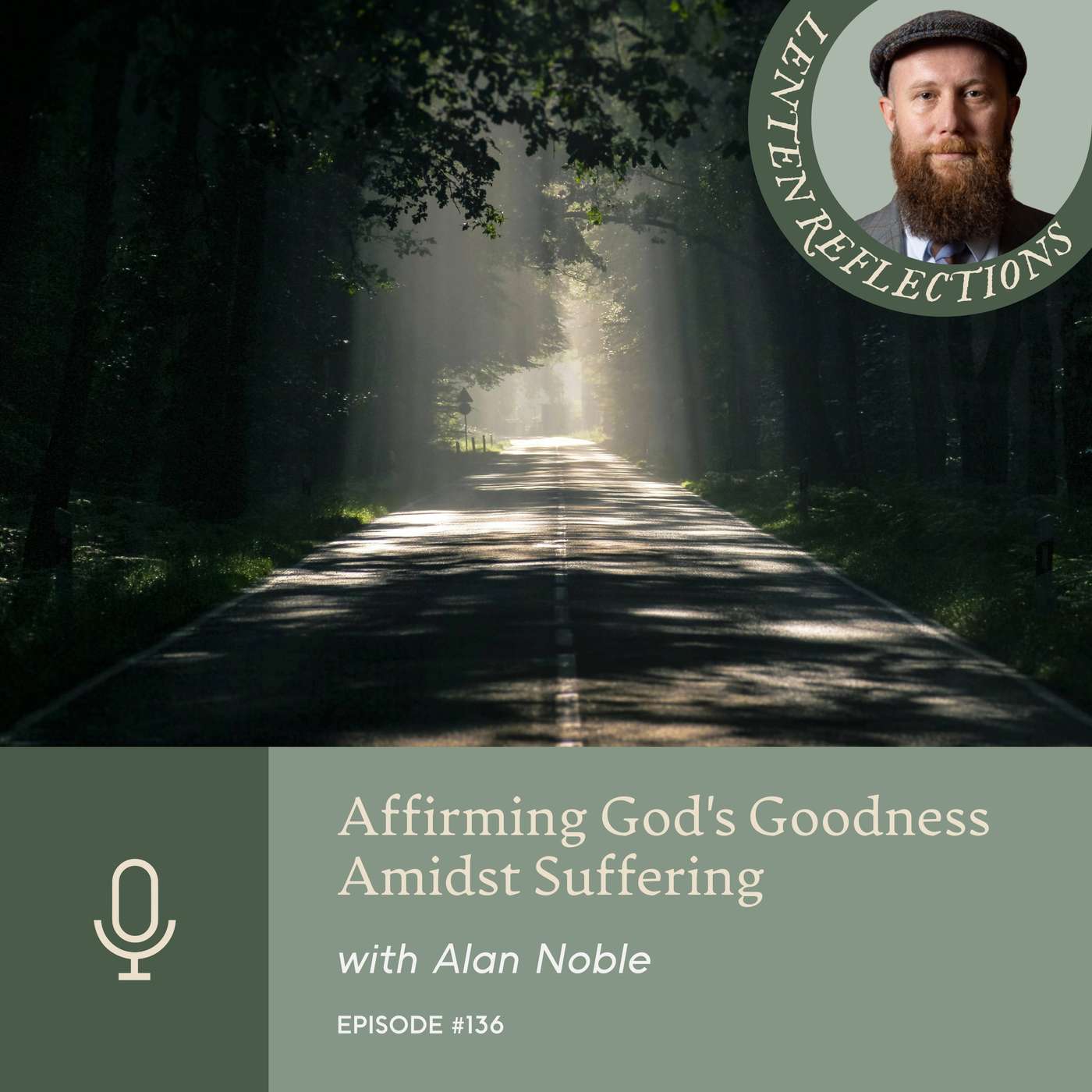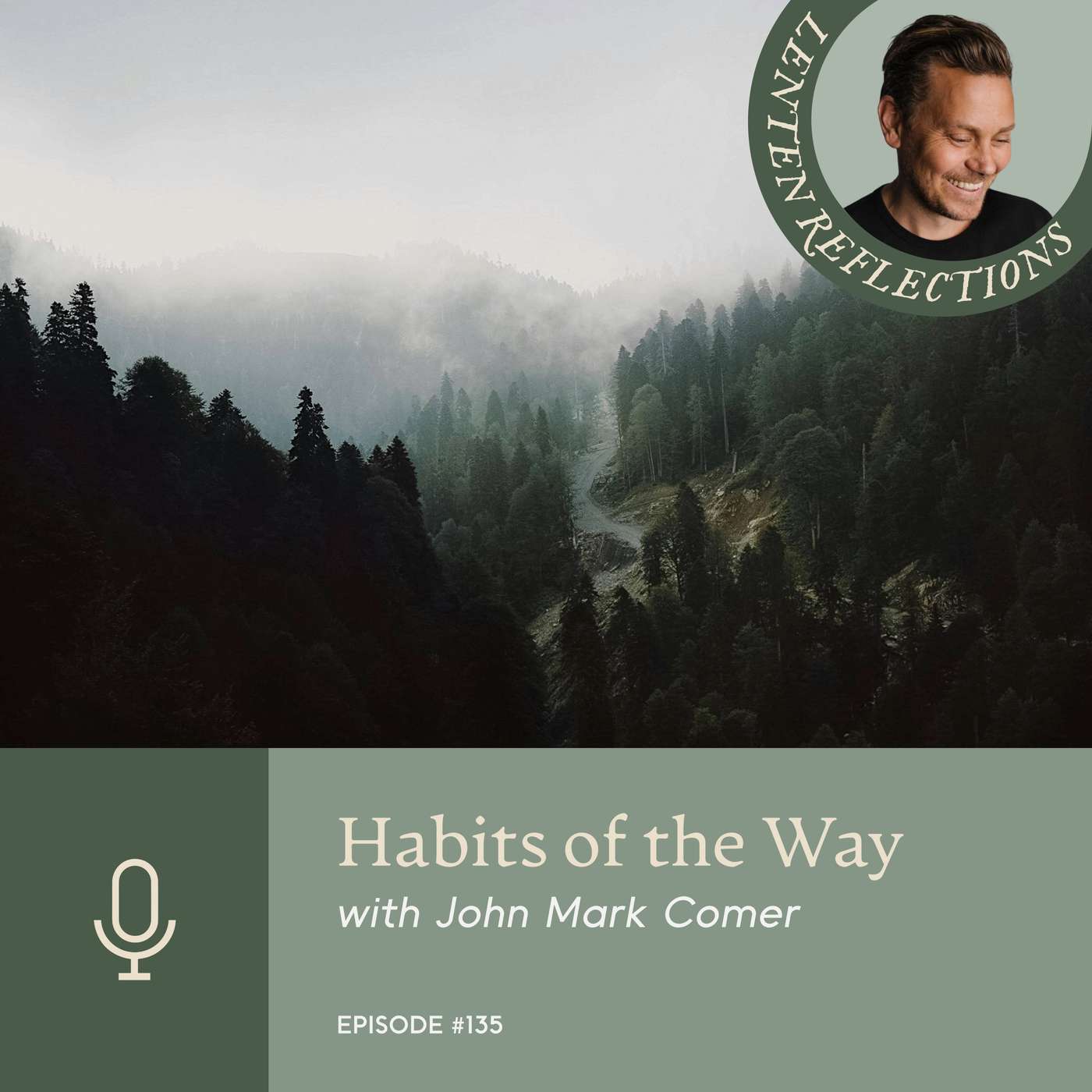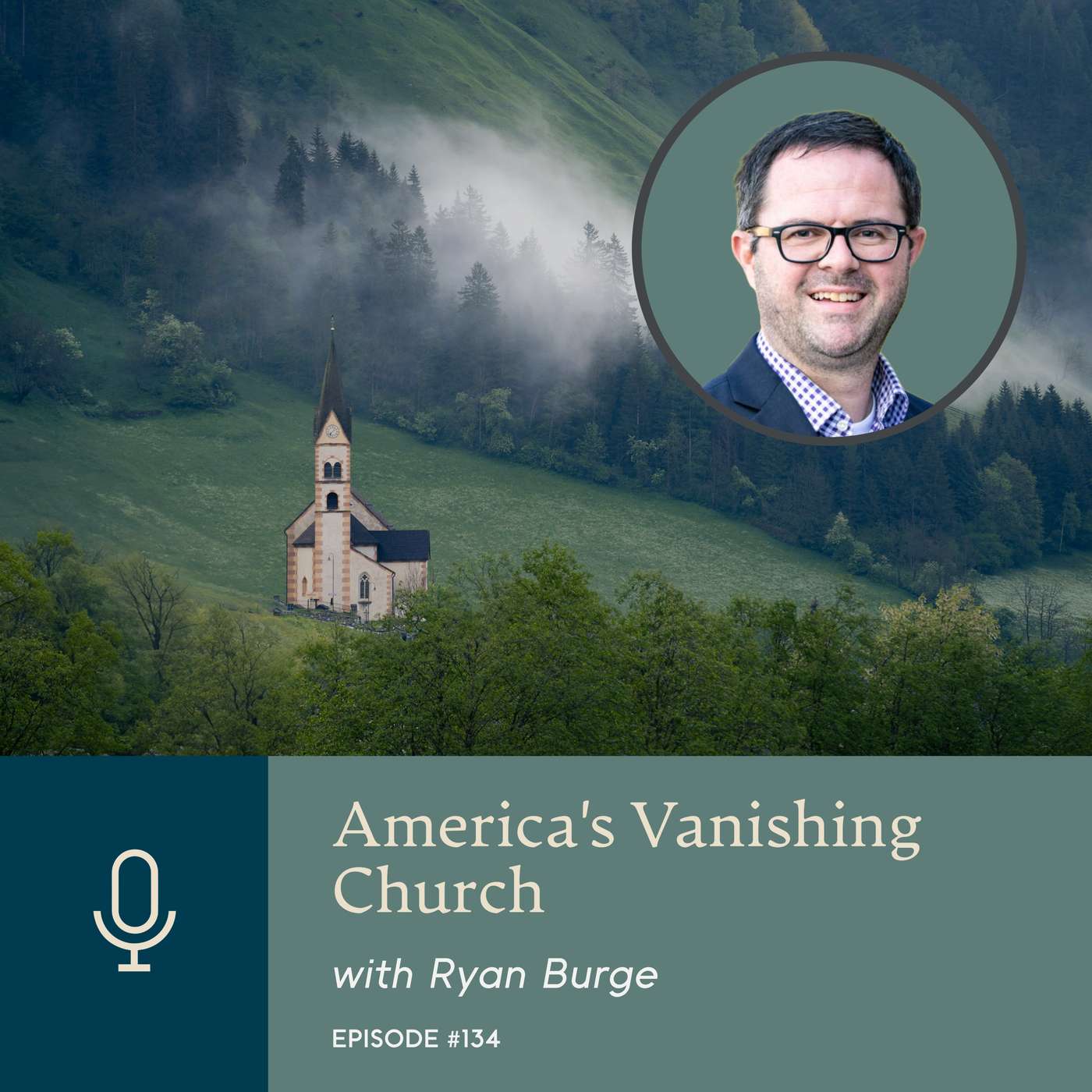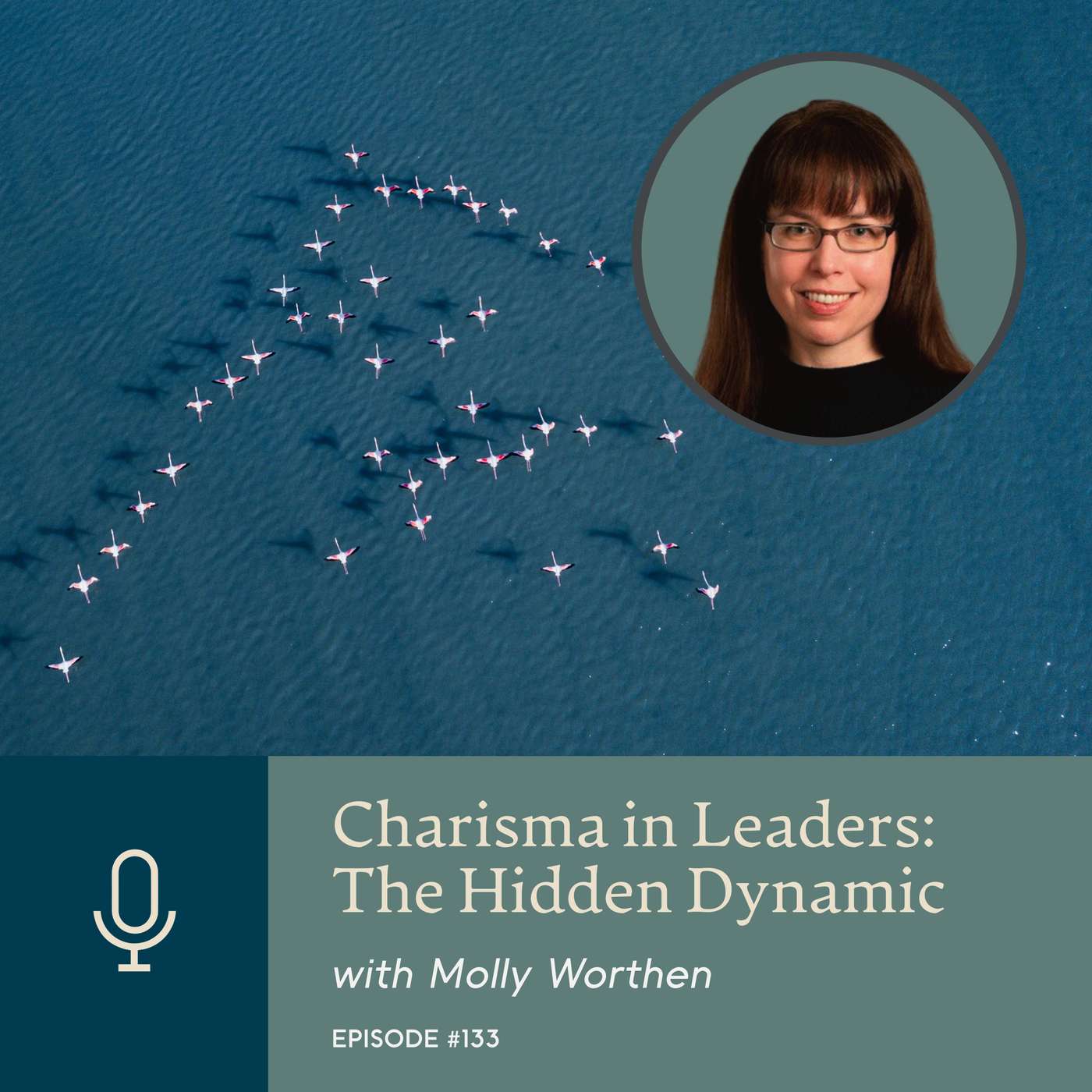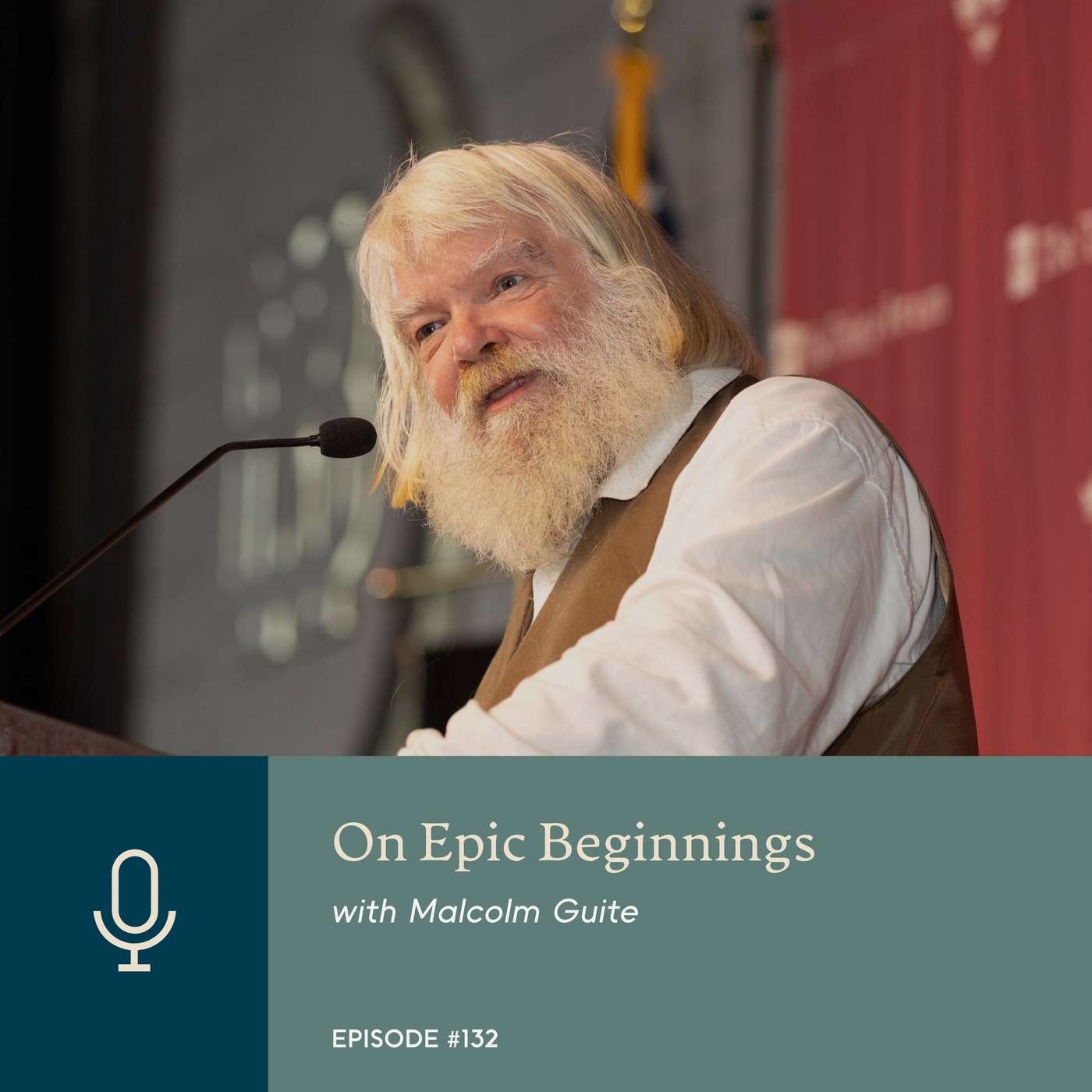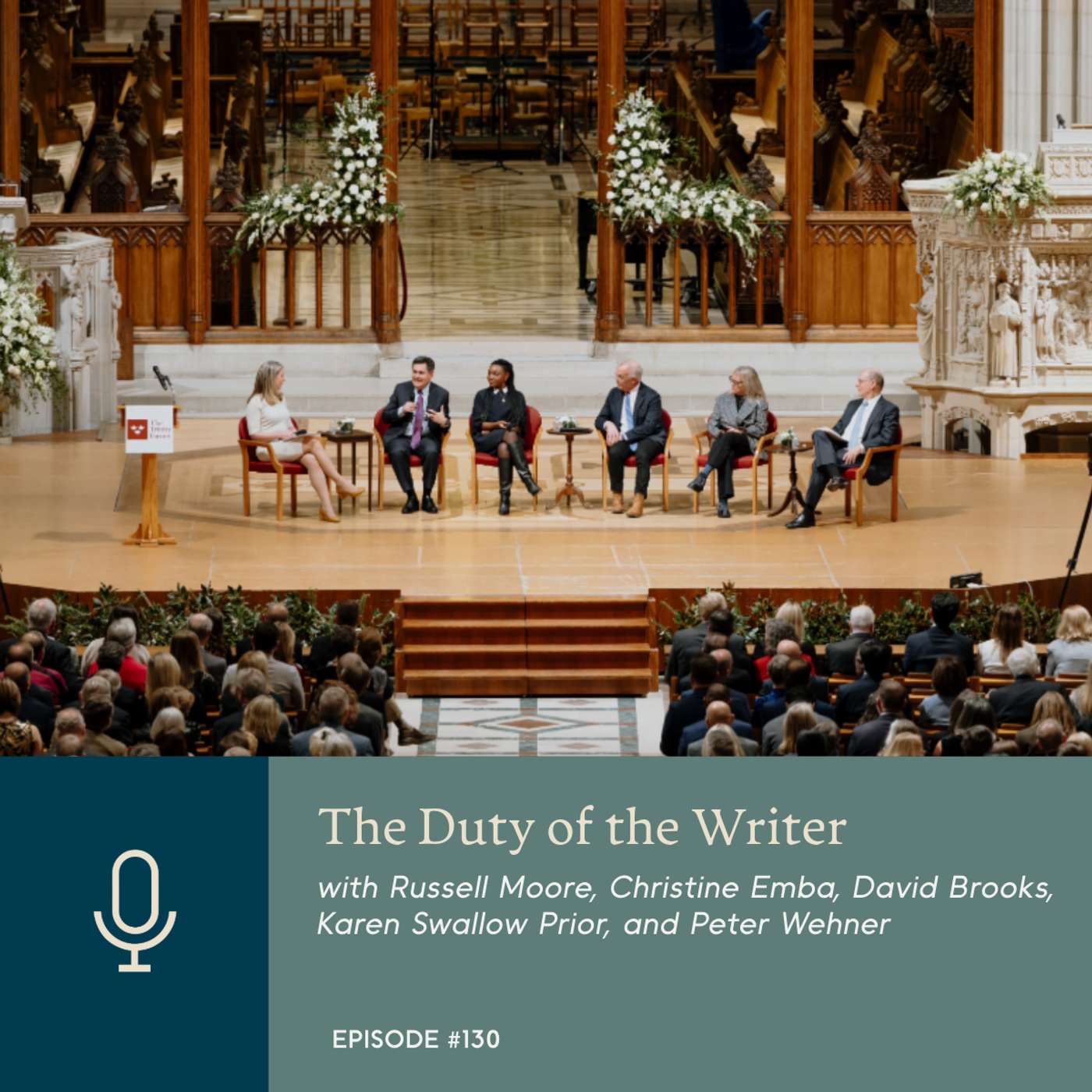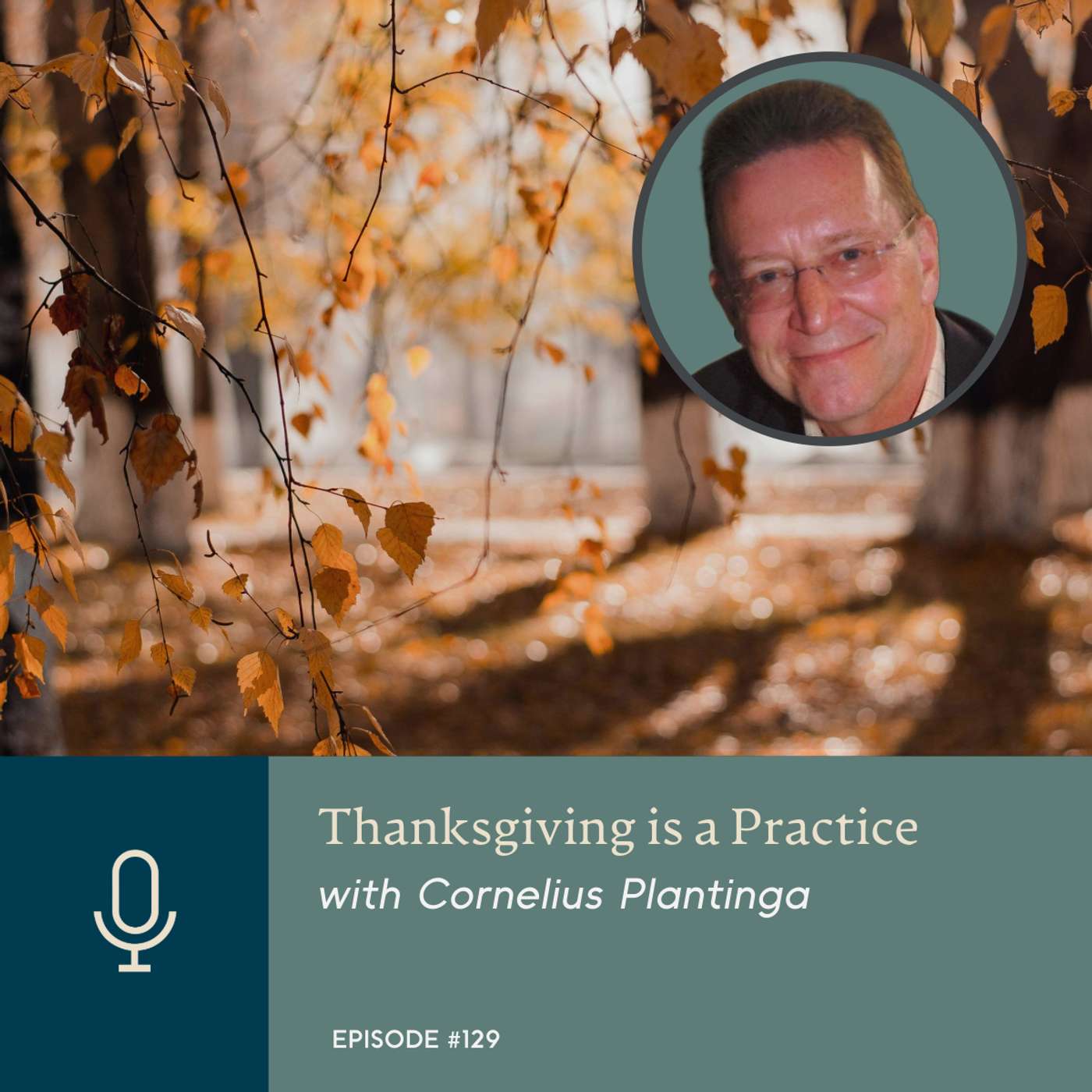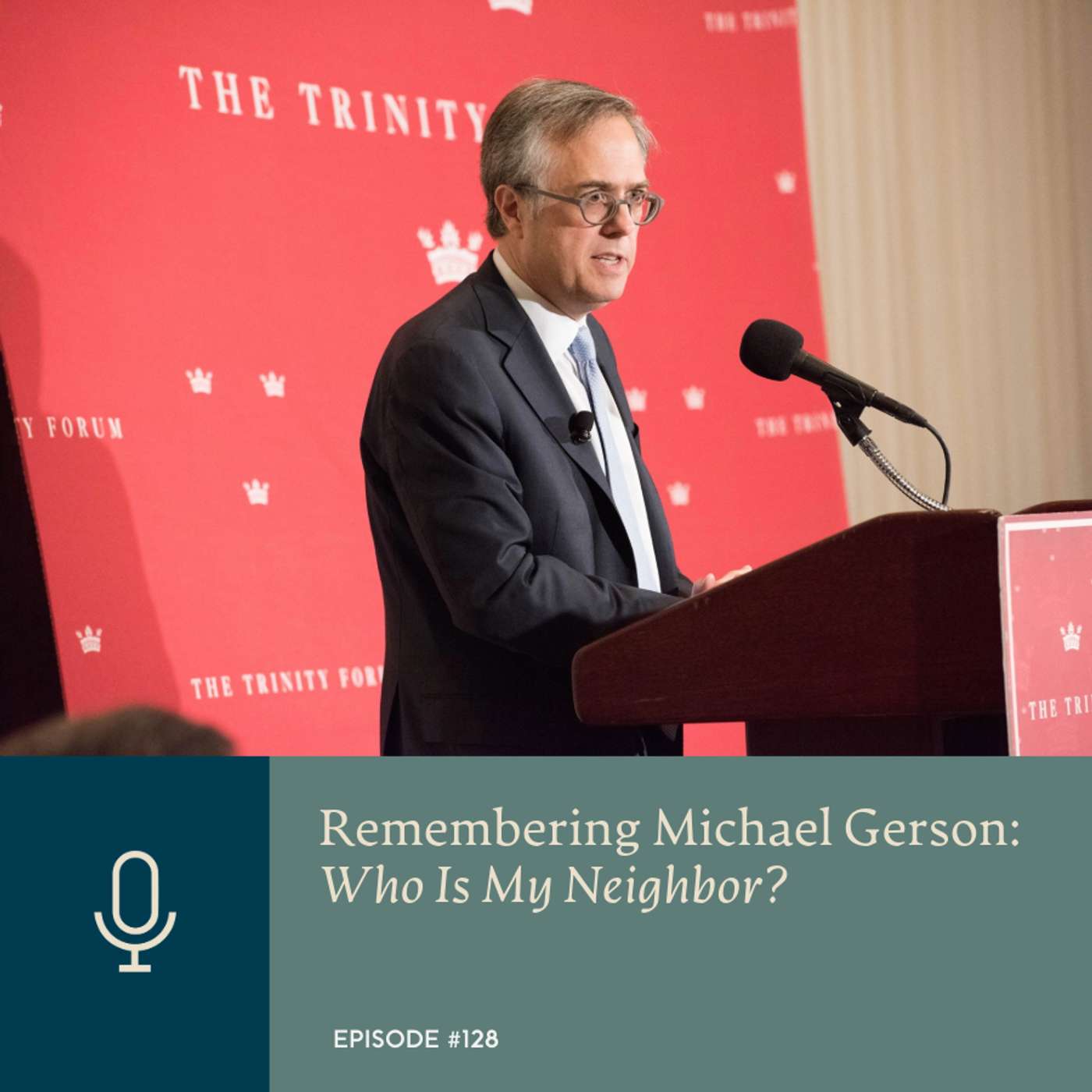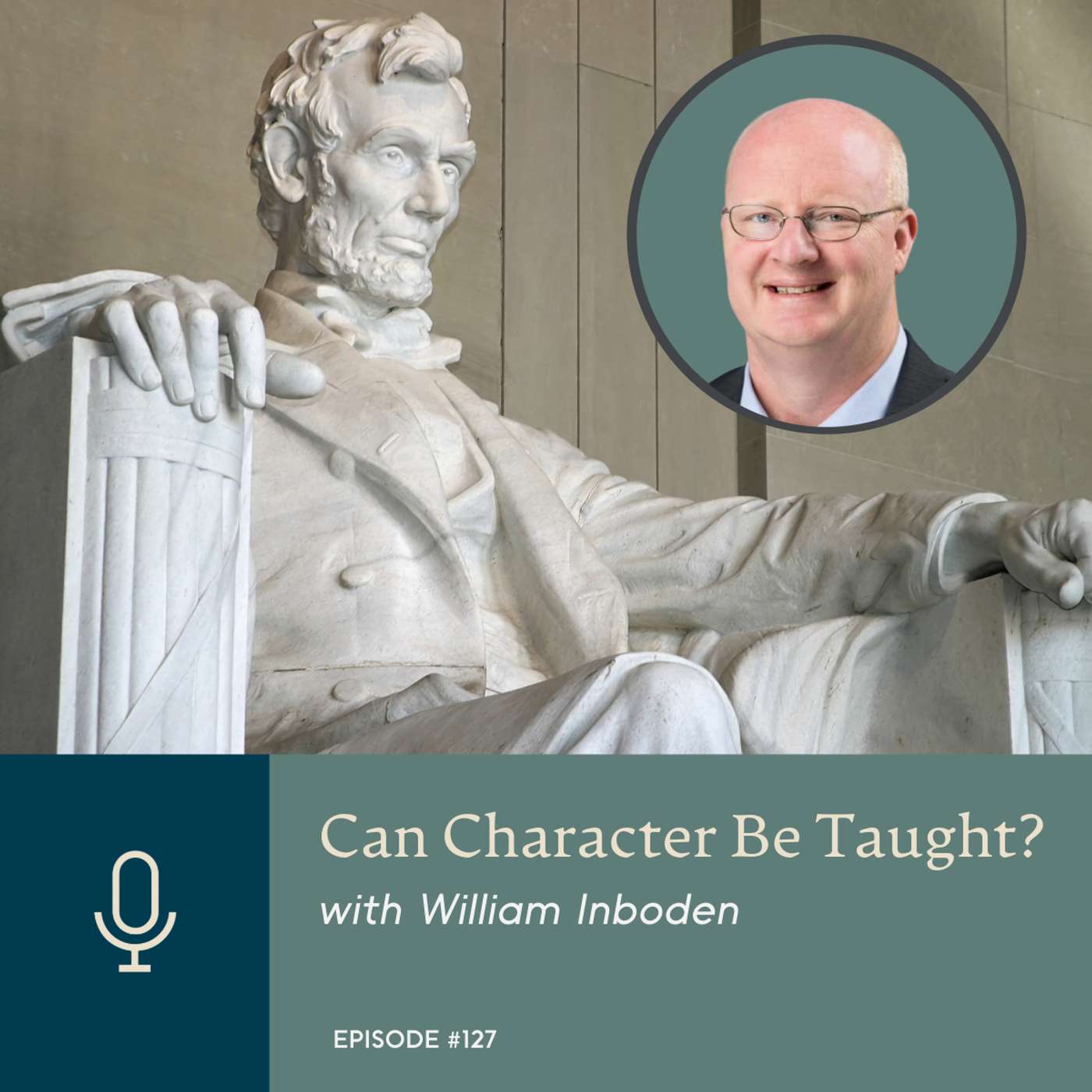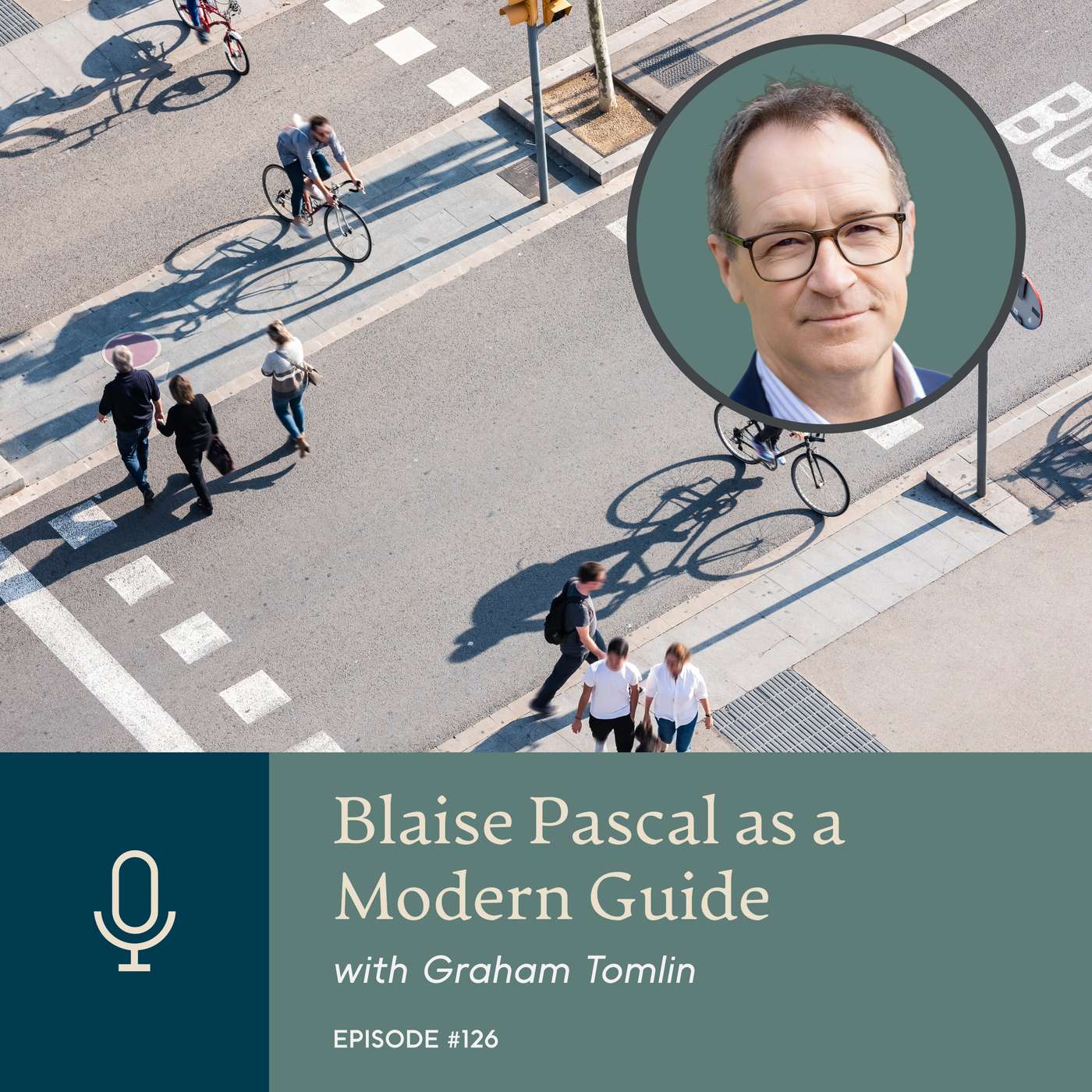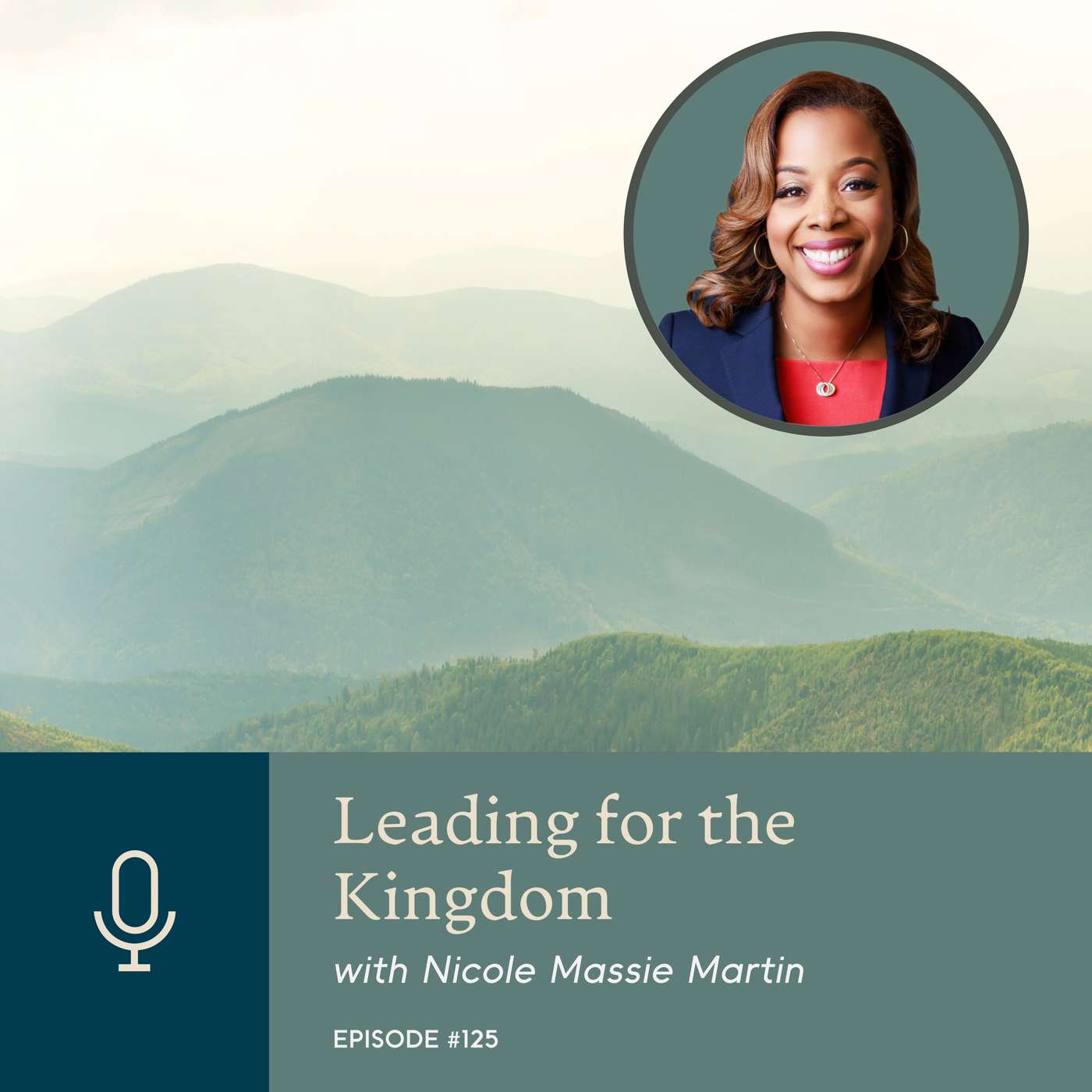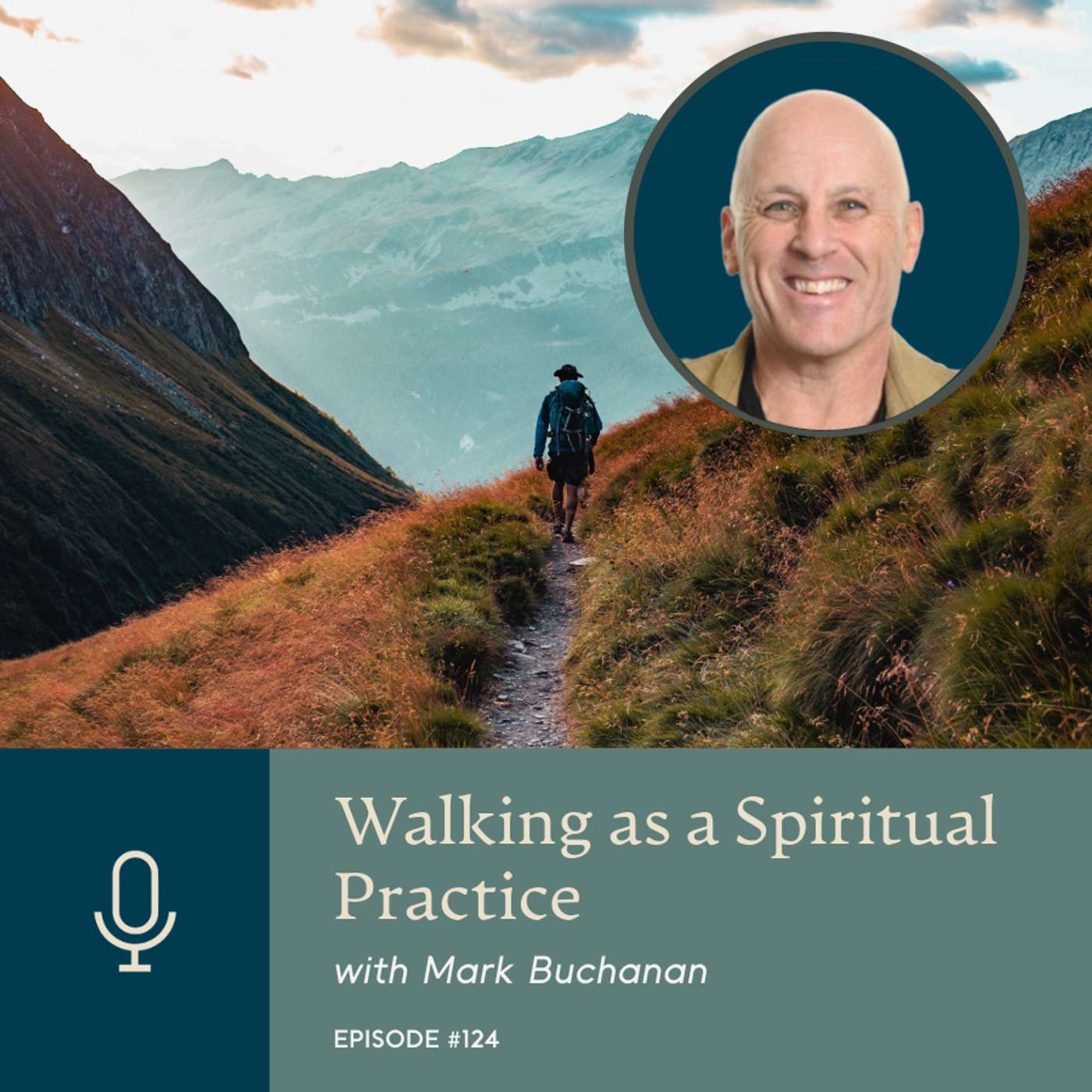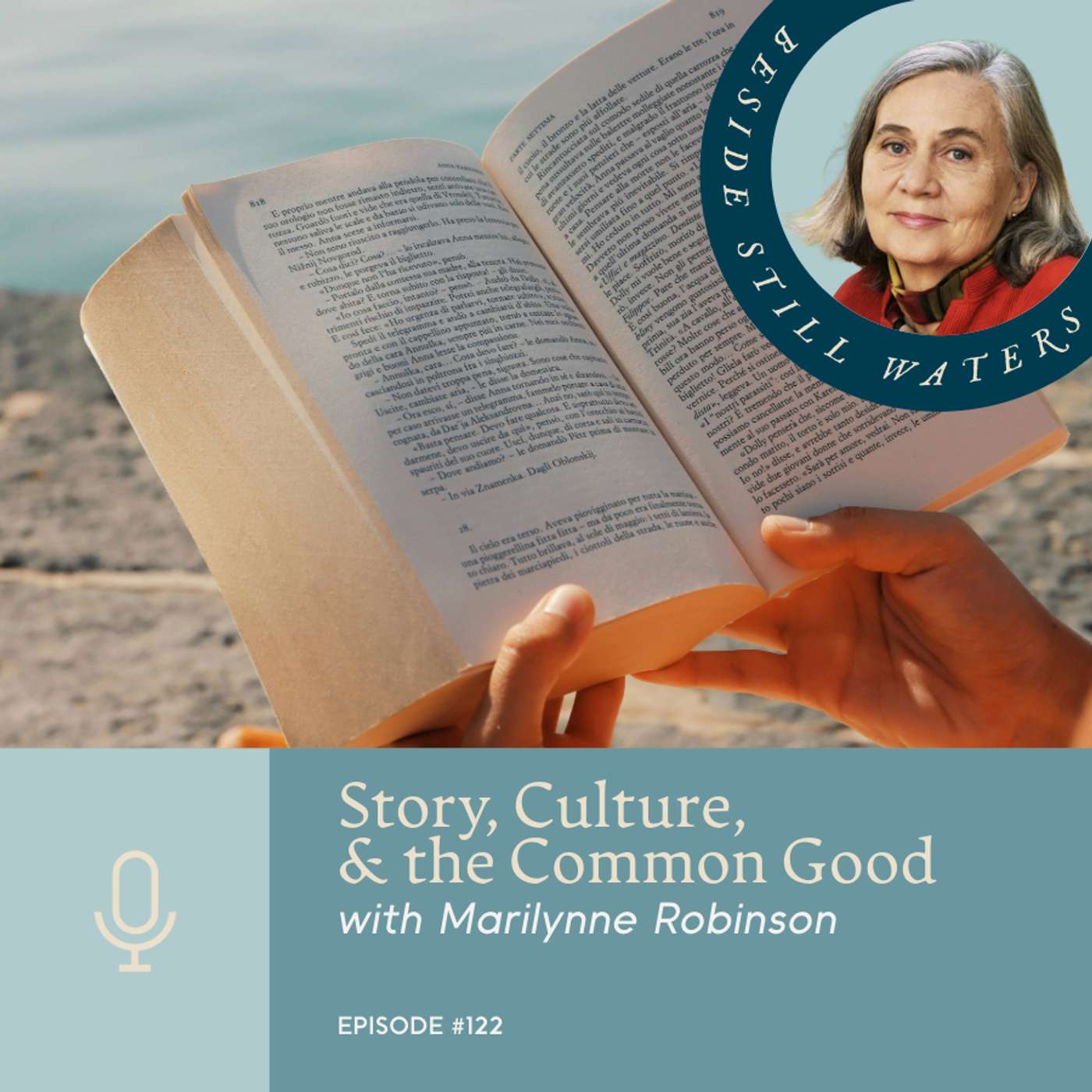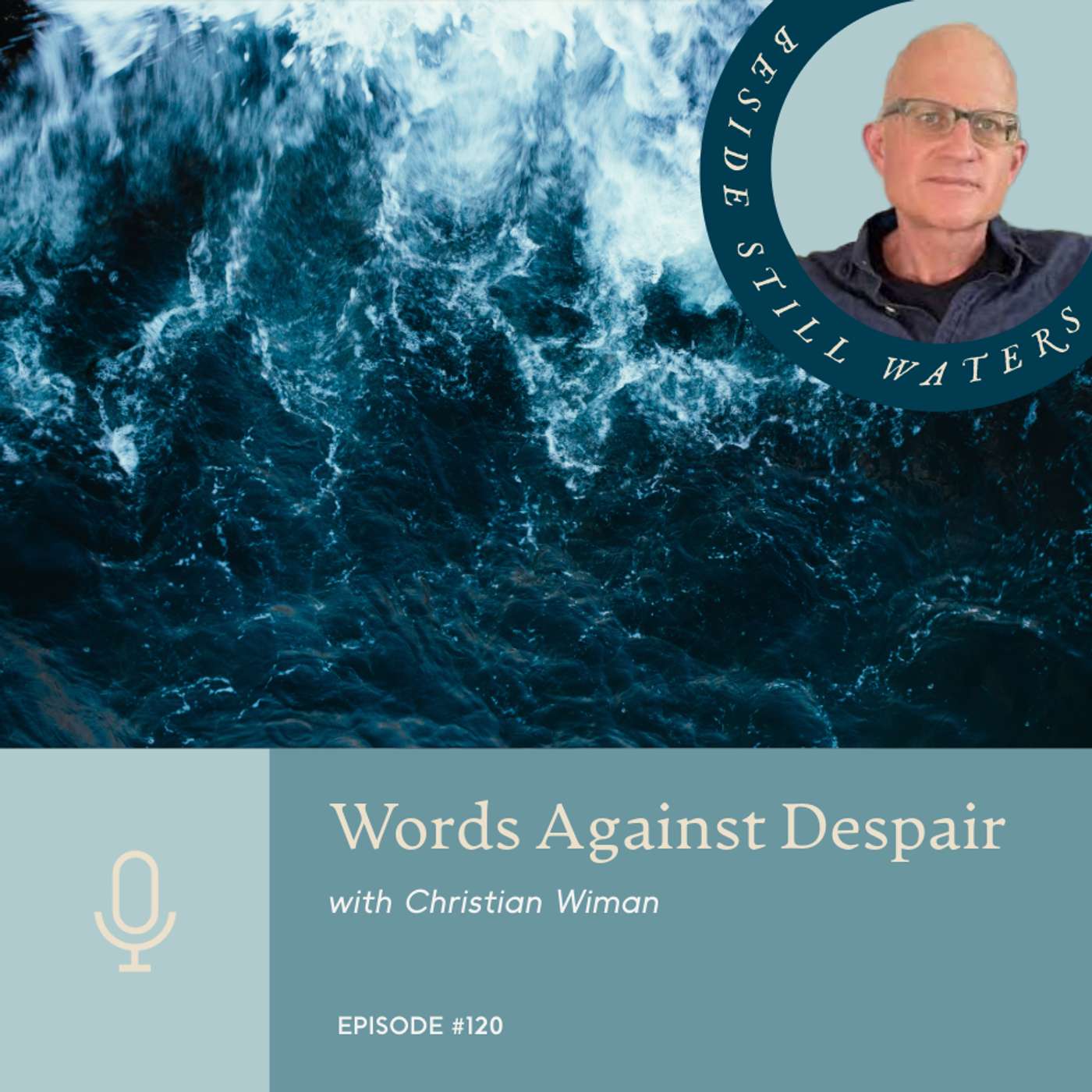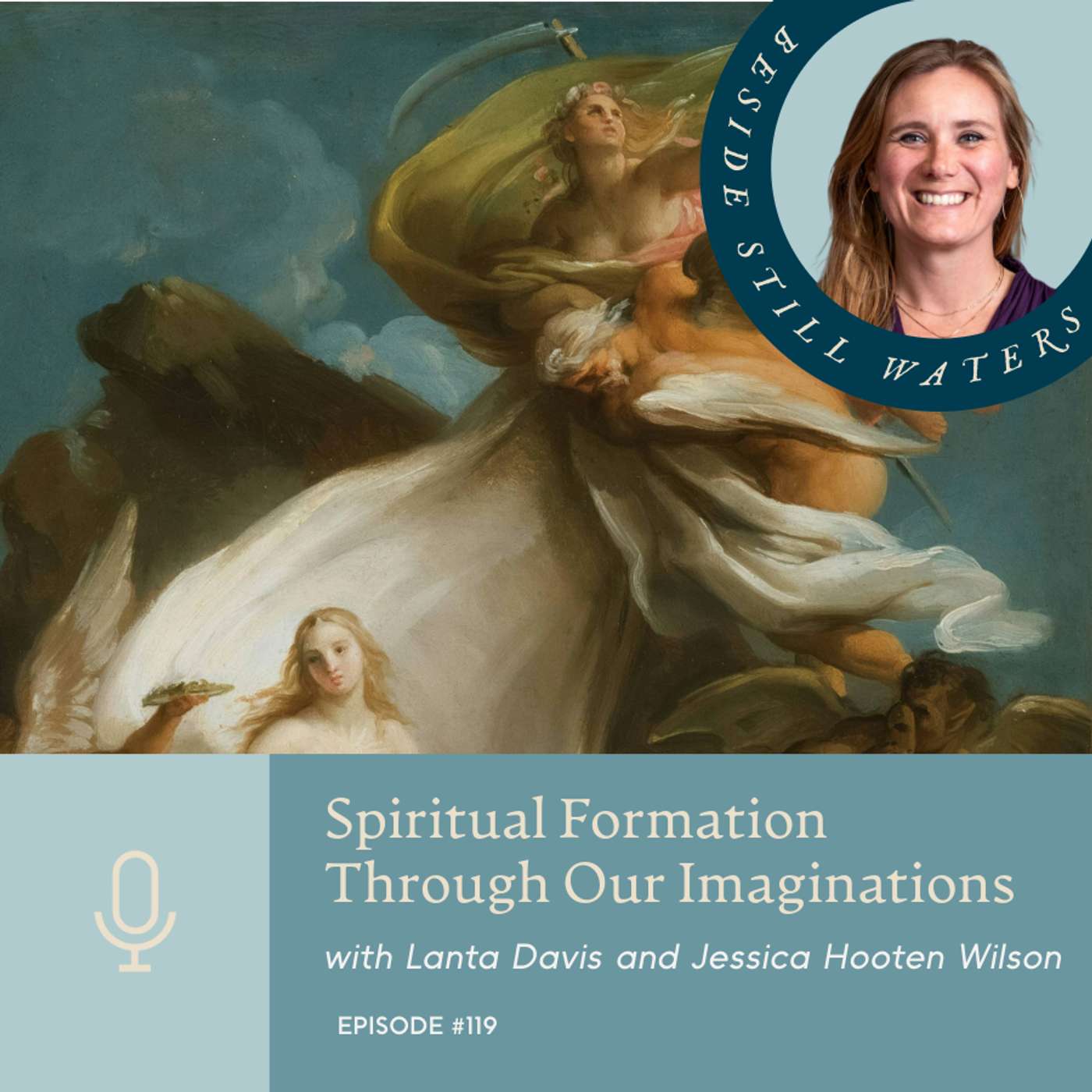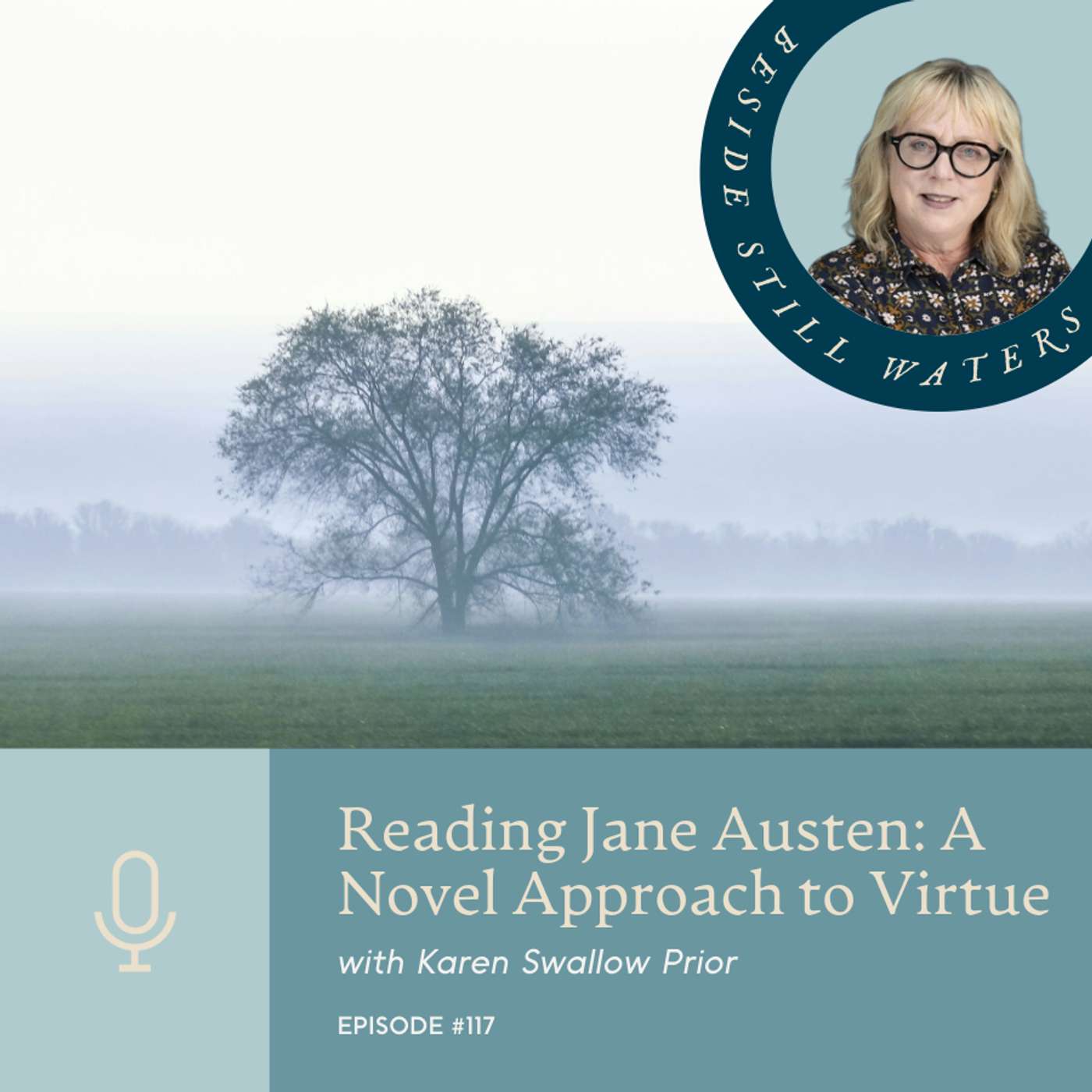Discover Trinity Forum Conversations
Trinity Forum Conversations

Trinity Forum Conversations
Author: The Trinity Forum
Subscribed: 213Played: 7,743Subscribe
Share
© 2026 The Trinity Forum
Description
Trinity Forum Conversations is a podcast exploring the big questions in life by looking to the best of the Christian intellectual tradition and elevating the voices, both ancient and modern, who grapple with these questions and direct our hearts to the Author of the answers. We invite you to join us in one of the great joys of life: a conversation among friends on the things that matter most.
136 Episodes
Reverse
Welcome to the Trinity Forum Conversations podcast. As we move through the season of Lent, we’re offering a series to help each of us prepare the way of the Lord. It’s a good time to take stock of our spiritual practices, and our guide today is the author and professor Alan Noble. In his book, On Getting Out of Bed: The Burden & Gift of Living, Alan contends that simply deciding to engage with the world each day constitutes a declaration of the goodness of God:“Now, there may come times when you are required by your suffering to radically depend upon others to carry you out of bed. My advice is to embrace those moments, knowing that you’ll carry your neighbor in return when the time comes.”This episode is drawn from an Online Conversation recorded in 2023. We hope you enjoy the conversation.
As we move into the season of Lent, we’re offering a series to help each of us prepare the way of the Lord. It’s a good time to take stock of our spiritual practices, and today’s guide is the author John Mark Comer. In his book Practicing the Way, John Mark explores the practical realities of what it means to be an apprentice of Jesus:“It seems to me that the telos of the spiritual journey in the Christian way is becoming a person of love through deepening union with the Father and the Son and the Holy Spirit…It’s the two greatest commandments: love the Lord your God with all your heart, soul, mind, and strength, and love your neighbor as yourself, that Jesus put at the center of apprenticeship to him.” This episode is drawn from an online conversation recorded in 2024.
Many of us have been grieved by the polarization we see rending so many churches. What role has this played in America’s growing secularization and what our guest has called “the great dechurching”? And is that dechurching now actually in reverse? Fundamentally, what can we do to pursue the flourishing of both the church and the nation?In this episode, our guide is Ryan Burge, an ordained minister, best-selling author and professor of practice at the Danforth Center on Religion and Politics at Washington University. His book The Vanishing Church draws upon his scholarship as a data scientist, and his experience as a pastor, to explore how the church has been harmed by, and can offer healing from, the excesses of political combat and division:"[Attending church] is just good for your soul. It's just good for you as a person to be part of a community like that ... I think it's actually going to be good for democracy for you to realize what it's like to go ... get in the real world and realize it's actually a cool place to hang out, and there's value in that."This episode is drawn from an online conversation recorded in 2026. Please subscribe to this podcast - it helps people find us.And we hope you’ll consider becoming a member of our community, the Trinity Forum Society. Join us in exploring timeless Christian wisdom together, so you gain clarity and courage for your own life, and help cultivate a renewed culture of hope. You can do this at our website, ttf.org.
Charisma in leaders is a mysterious phenomenon. Maybe even baffling, if you’re the one left cold by a leader others see as charismatic. How has this mysterious word charisma, coined by the Apostle Paul but now applied widely, shaped us? How can this concept help us to understand our world?Our guide in understanding it is the University of North Carolina historian Molly Worthen, who’s also one of our Senior Fellows at the Trinity Forum. She’s written widely on her unexpected turn to Christian faith. In this conversation, drawing on her book Spellbound, Molly will guide us in understanding the powerful effects of charisma in leadership on religious and political life in America, all the way from the Puritans to the 21st century:"We are not that different from humans four centuries ago. The advance of democracy, the rise of the internet, scientific literacy, all of this has not really severed us from the deep past and from this, this fundamental desire to connect with a transcendent story about the universe."This podcast is an edited version of an Online Conversation recorded in 2025. It’ll help people find us if you subscribe to this podcast wherever you listen.And we hope you’ll consider becoming a member of our community, the Trinity Forum Society. Join us in exploring timeless Christian wisdom together, so you gain clarity and courage for your own life, and help cultivate a renewed culture of hope. You can do this at our website, ttf.org.
As we celebrate the new year, there’s no better guide than the poet, Anglican priest, and scholar, Malcolm Guite. Through the years, Malcolm has written beautifully on how poetic language can help our imaginations apprehend truth that our reason cannot fully comprehend.In this episode he describes Merlin’s Isle: An Arthuriad, his forthcoming four-volume epic poem on the legends of King Arthur and the Knights of the Round Table, which will be published over several years by Rabbit Room Press. He has described his purpose: making a poem that restores the spiritual elements that have been shorn away from these legends and renews their deepest meaning for our time:"You don’t have to invent yourself because somebody else who loves you has already done it. You from the beginning, the real heart of who you are, deeper and more beautiful than you could ever know, has simmered in the Divine mind since before the beginning of time. And now he’s speaking to you."With this work, Malcolm brings into the 21st century the epic tradition that includes Lewis, Tolkien, Milton and many others. This podcast is an edited version of an Evening Conversation recorded in 2025. You can find the full video on our website, ttf.org. While there, please consider becoming a Trinity Forum Society member too. Join us in exploring timeless Christian wisdom together, so you gain clarity and courage for your own life, and help cultivate a renewed culture of hope.We hope you enjoy the conversation.
Singing during Christmastime—and at all times—has deep formative power, shaping our minds and our spirits. In times of distraction and anxiety, how can we access this formation? And how can caroling at Christmas aid us in keeping Christ at the center of our hearts?Our guide is Keith Getty, an extraordinary hymn writer, musician, and catalyst for the modern hymn movement. In a special Christmastime conversation, we explored music, formation, and beauty:“We’re fearfully and wonderfully made. We remember tunes and we forget sermons, not because we’re bad people, but it’s because of how God made us. The carols are special because repetition is a form of liturgy. And each Christmas, the liturgy of singing provides such an opportunity for us.” – Keith GettyThis podcast is an edited version of an Online Conversation recorded in 2023. You can find the full video on our website, ttf.org. While there, please consider becoming a Trinity Forum Society member too. Join us in exploring timeless Christian wisdom together, so you gain clarity and courage for your own life, and help cultivate a renewed culture of hope.
This special episode is taken from the launch of the inaugural Michael J. Gerson Prize for Excellence in Writing on Faith and Public Life. Through this conversation, held at Washington National Cathedral in November 2025, you’ll learn a lot about Michael, and what his legacy means for us now. What you’ll hear in this episode is a conversation moderated by Trinity Forum President Cherie Harder on “Conscience, Courage and Craft: The Duty of the Writer in an Age of Confusion.” The all-star panelists are Peter Wehner, David Brooks, Christine Emba, Russell Moore, and Karen Swallow Prior. You’ll also hear videos provided in Michael’s memory by two of his friends – President Bush, and Bono.“Our responsibility [as writers] is to … remind our readers and our audiences of the good, the true, the beautiful, the virtuous … to show that those things can be lovely, actually, to redefine those words in ways that don't make them smell of just old books and past lectures that we've moved past, but something that can be alive in this moment.” —Christine EmbaLater that evening, Matthew Loftus was named as the inaugural winner of the award. You can find writings by Matthew, and by Michael Gerson, at TTF.org. You can also find the full YouTube video of the evening there. While you’re there, why not consider becoming a member of the Trinity Forum? Join us in exploring timeless Christian wisdom together, so you gain clarity and courage for your own life, and help cultivate a renewed culture of hope - including through next year’s Michael Gerson Prize.
Thanksgiving is much more than a holiday. The practice of gratitude is a biblical command, it’s a Christian virtue, and it’s even one of the best predictors of personal well-being. But what does the practice of thanks-giving require? How can we cultivate a spirit and habit of thankfulness with the burdens we bear as individuals, and amidst the sorrows and injustices of a fallen world?Join us in this episode in discovering formative practices from our Christian tradition that can help each of us cultivate a deeply thankful heart. Together we’ll be guided by Cornelius (Neal) Plantinga, theologian and author of Gratitude: Why Giving Thanks Is the Key to Our Well-Being. “Gratitude makes me content because gratitude makes what I have enough.”This episode is drawn from an online conversation held in 2025. You can find the full video of the conversation on our website, ttf.org. You can become a Trinity Forum Society member there too. Join us in exploring timeless Christian wisdom together, so you gain clarity and courage for your own life, and help cultivate a renewed culture of hope.
This is a special episode in memory of Michael Gerson. Michael J. Gerson was a White House speechwriter and senior policy adviser, a Washington Post columnist and one of America’s most influential and eloquent commentators. Michael was shaped by his deep Christian faith, and his writing drew from the Christian tradition to call America to greater justice. In particular, he’s remembered for linking that tradition to the global health efforts he championed, including the President’s Emergency Plan for AIDS Relief, or PEPFAR. To mark the three years since Michael passed away due to cancer on November 17, 2022, we’re presenting this edited version of his comments at a Trinity Forum evening conversation held in 2016. Hearing him again reminds us of Michael’s extraordinary mind, as well as his heart. “You can never be too careful when you travel. You can go in search of disease and poverty and stumble upon holy ground, and you can find resilience, courage, and faithfulness that will inspire you and challenge you for the rest of your life.”You can find the full video of the conversation on our Trinity Forum website, ttf.org. You can become a member there too. Join us in exploring timeless Christian wisdom together, so you gain clarity and courage for your own life, and help cultivate a renewed culture of hope.
Does character matter? In the last century, our society shifted away from teaching character in schools in order to focus on different forms of learning. How has that change shaped the world we live in now? Should cultivating character be a focus of education, and can character even be effectively taught in a pluralistic society?Our guest on today’s podcast is Dr. William Inboden, provost of the University of Texas, and one of our Senior Fellows here at the Trinity Forum. He’ll be our guide as we explore the roles of education, community, and faith in forming people of wisdom and integrity.What does it mean to be in community? What are the implications of your character for that? Loyalty, honesty. Those are fundamental to building friendships. Integrity, self sacrifice. Those are also fundamental to living for something greater than yourself.This episode is drawn from an Online Conversation held in 2025. It’ll give you a sense of what the Trinity Forum is about: a community of people renewing our culture by applying wisdom from the Christian tradition, and nurturing its growth.
In this episode, we explore the life and mind of whom historian Tom Holland calls “17th century Europe’s supreme polymath": Blaise Pascal. Our guide is Graham Tomlin, a former bishop in the Church of England. Drawing from his book, Blaise Pascal, the Man Who Made the Modern World, Graham brings us on a journey through Pascal’s life, his conversion to Christianity, and his famous argument for belief in God known as “the Wager.”Together, we’ll explore the ways in which Pascal himself can still be a guide for us today. "What else does [man's] craving and helplessness proclaim—but that there was once in man a true happiness of which all that remains is the empty print and trace. This he tries in vain to fill with everything around him, seeking in things that are not there, the help that he cannot find in those that are. Though none can help. Because this infinite abyss can be filled only with an infinite and immutable object. In other words, by God himself."This conversation was recorded in August 2025. You can find the original video and transcript here.Thank you for joining us in exploring timeless wisdom together, to help you gain clarity and courage for your own life, and to help nurture a culture of renewed hope.
What does redemptive leadership mean? As Christians, we have a unique calling: not just to lead, but to serve. What does this look like in today’s culture, and how can we serve as leaders and foster an environment of abundant grace and joy wherever we are?Christianity Today’s Dr. Nicole Massie Martin helps us to understand how we can nail outdated models of leadership to the cross, and what it will take to replace them with Biblical ones:“We need to nail to the cross what is a very secular understanding … of [power, ego, and performance], so that what is resurrected through Christ might be redemptive and bring glory to God and good to the people that we lead.”This conversation is from an Online Conversation recorded in May 2025. We hope this conversation will inspire you to identify the ways you lead, and how you can step further into leading with grace, humility, and joy.Authors and books mentioned in the conversation:Emotionally Healthy Spirituality, Peter ScazzeroKilling Comparison: Reject the Lie You Aren’t Good Enough and Live Confident in Who God Made You To Be, Nona JonesGo deeper into the issues discussed in this episode with these Trinity Forum Readings:How Much Land Does a Man Need?; Leo TolstoyA Man Who Changed His Times; William WilberforceLetter from Birmingham Jail; Martin Luther King, Jr.Who Stands Fast?; Dietrich BonhoefferNarrative of the Life of Frederick Douglass; Frederick Douglass
What does it mean to walk with God? The spiritual life is so often described as a walk, journey, or pilgrimage that it can be easy to dismiss the practice of walking as a mere metaphor.But in God Walk, author, pastor, and professor Mark Buchanan explores the way that the act of walking has profound implications for followers of the Way:“Hurry is the enemy of attentiveness. And so love as attentiveness is listening and caring and noticing, cherishing, savoring, being awestruck, these things that we feel in a relationship. I am deeply loved by this person because they notice me. I think that that’s how God’s built it. And we can’t get that if we’re moving too fast, if we’re in a hurry.”This episode is drawn from an online conversation held in 2023. It’ll give you a sense of what the Trinity Forum is about: a community of people renewing our culture by applying wisdom from the Christian tradition, and nurturing new growth in it, in our time. If that resonates with you, please join the Trinity Forum as a member, at ttf.org.As we ponder the spirituality of walking, our fall Trinity Forum Reading features naturalist Henry David Thoreau’s ruminations on the art of walking, with an introduction by Trinity Forum President Cherie Harder. Stay tuned for pre-ordering later this week, and join our membership to receive a copy mailed directly to you.Authors and books mentioned in the conversation:AristotleSøren KierkegaardJean-Jacques RousseauGod Walk, by Mark BuchananSimone WeilThe Three Mile an Hour God, by Kosaku KoyamaWanderlust: A History of Walking, by Rebecca SolnitKnowing God, J.I. PackerKai MillerRelated Trinity Forum Readings:Pilgrim’s Progress, by John BunyanPilgrim at Tinker Creek, by Annie DillardGod’s Grandeur, by Gerard Manley HopkinsLong Walk to Freedom, by Nelson MandelaBrave New World, by Alduous HuxleyRelated Conversations:A New Year With The Word with Malcolm GuiteMusic, Creativity & Justice with Ruth Naomi FloydPursuing Humility with Richard Foster and Brenda QuinnReading as a Spiritual Practice with Jessica Hooten WilsonGet tickets for The Rabbit Room's Housemoot.To listen to this or any of our episodes in full, visit ttf.org/podcasts/ and to join the Trinity Forum Society and help make content like this possible, join the Trinity Forum Society.
Our theme for this episode is “Untangling Our Knotted-Up Lives,” and our guest is the author and speaker Beth Moore. Drawing from her bestselling memoir, Beth helps us work through a challenge we all may face at various times: maintaining resilience — and faithfulness to our vocations — in the face of hardship:“I’d come to a point where I thought, oh my goodness, I see this. I get what Jesus is doing here, whatever it might be. I had this compelling to share it, and I have throughout my whole adult life.”This episode is drawn from an online conversation held in 2025. It’ll give you a sense of what the Trinity Forum is about: a community of people renewing our culture by applying wisdom from the Christian tradition, and nurturing new growth in it, in our time. If that resonates with you, please join the Trinity Forum as a member, at ttf.org.Go deeper into the topics discussed in this conversation with these Trinity Forum Readings:Pilgrim's Progress; John BunyanThe Long Loneliness; Dorothy DayA Spiritual Pilgrimage; Malcolm MuggeridgeConfessions; St. AugustineThe Children of Light and the Children of Darkness; Reinhold Niebuhr
Our Summer 2025 series, Beside Still Waters, focuses on the places where creativity brings life into a world fatigued by brokenness and division. From jazz to Jane Austen and in between, this season we’re focusing on the ways literature and the arts can refresh and challenge our inner lives—and connect us with the Creator of the good, the true, and the beautiful.Today’s episode concludes our summer series. Our guide today is the acclaimed writer Marilynne Robinson, author of the Gilead series, and much else. In this episode, originally an Online Conversation recorded in 2020, Marilynne reflects on the art of writing as a means of exploring truth and engaging questions around learning to live well, to love others, and to create a home and community, in our fractious world:“The unique brilliance of a human being … is something that we tend utterly to disparage, demean, utterly fail to notice … every person lives out a [life] beautiful, complicated, inaccessible to other consciousnesses. And it is sacred.”And if this conversation resonates with you, consider joining the Trinity Forum community as a member, at ttf.org. You can find the full video of this conversation there too. Marilynne Robinson's Novels | Housekeeping, Gilead, Home, Lila, Jack, Reading GenesisArticle in Breaking Ground from our event.Authors and books mentioned in the conversation:Marcel ProustRalph Waldo EmmersonPaul HardingWalt WitmanWilliam FaulknerJohn CalvinJonathan EdwardsMoby Dick, by Herman MellvillePiers Plowman, by William LanglandRelated Trinity Forum Readings:Sacred and Profane Love | A Trinity Forum Reading by John Donne Bulletins from Immortality | A Trinity Forum Reading by Emily Dickinson Confessions | A Trinity Forum Reading by Saint Augustine Brave New World | A Trinity Forum Reading by Aldous Huxley Marilynne Robinson is a novelist, essayist, and teacher, one of the most renowned and revered of living writers. Her novels Housekeeping, Gilead, Lila, and Home have been variously honored with the Pulitzer Prize, National Books Critics Circle Award (twice), a Hemingway Foundation Award, an Orange Prize, The Library of Congress Prize for American Fiction, and the Ambassador Book Award. She's also the author of many essays and non-fiction works, including her work, “Mother Country”, and her essay collections, “Death of Adam,” “Absence of Mind,” “When I was a Child I Read Books,” “The Givenness of Things,” and “What Are We Doing Here?”. She's the recipient of the National Humanities Medal and an elected fellow of the American Academy of Arts and Sciences. In addition to her writing has spent over 20 years teaching at the Iowa Writers Workshop, as well as several universities.
Our Summer 2025 series, Beside Still Waters, focuses on the places where creativity brings life into a world fatigued by brokenness and division. From jazz to Jane Austen and in between, this season we’ll focus on the ways literature and the arts can refresh and challenge our inner lives—and connect us with the Creator of the good, the true, and the beautiful.Guided by theologian and musician David Bailey and concert pianist and chamber musician Mia Chung, this episode explores the concept that music involves mutual support, balance, and give and take among musicians to create a cohesive experience.And we reflect on how Christian communities can apply these principles of collaboration and harmony to create faith communities that are transformative:To the extent that the arts can actually cultivate that practice of incorporating the right hemisphere and in communication with the left, it's always together, you know, they're, complimentary. I think we can benefit each other in terms of community formation, but even benefit our own intellectual lives and the amount of joy we experience living in this world. - Mia Chung If this work resonates with you, please consider joining the Trinity Forum community as a society member.This podcast is an edited version of our Online Conversation recorded in June, 2024. You can access the full conversation with transcript here.Learn more about Mia Chung and David Bailey.Episode Outline00:00 Introduction to Trinity Forum Conversations00:34 Exploring Music and Christian Community01:36 Cherie Harder on Cultural Challenges02:55 Welcoming David Bailey and Mia Chung04:41 David Bailey's Musical Journey06:56 Mia Chung's Musical Formation10:44 The Role of Arts in Reconciliation13:19 The Power of Music in Community Building23:17 Reintegration and Reconciliation at MIT28:52 Challenges and Practices for Reconciliation30:10 Digital Discipleship and Secular Influence30:44 The Importance of Fasting and Listening32:33 Engaging Differently as Followers of Jesus33:28 The Role of Technology in Information Consumption34:18 Post-COVID Convening and Empathetic Listening37:25 The Power of Music and Emotional Expression40:04 Silence and Contemplative Practices44:43 Artistic Collaboration and Reconciliation51:19 Final Thoughts and EncouragementAuthors and books mentioned in the conversation:Arrabon: Learning Reconciliation Through Community & Worship Music, by David BaileyRelated Trinity Forum Readings:Hannah and Nathan, by Wendell BerryPainting as a Pastime, by Winston ChurchillThe Four Quartets, by TS EliotLetters from Vincent Van GoghSpirit and Imagination, selections from Samuel Taylor ColeridgeWhy Work?, by Dorothy SayersThe Loss of the University, featuring the works of Wendell Berry and Jacques MaritainTo listen to this or any of our episodes in full, visit ttf.org/podcast and to join the Trinity Forum Society and help make content like this possible, join the Trinity Forum Society.
Our Summer 2025 series, Beside Still Waters, focuses on the places where creativity brings life into a world fatigued by brokenness and division. From jazz to Jane Austen and in between, this season we’ll focus on the ways literature and the arts can refresh and challenge our inner lives—and connect us with the Creator of the good, the true, and the beautiful.Our guest this episode is the poet Christian Wiman, a master of the written – and spoken – word. After long wandering, he returned to the Christian faith in which he’d been raised, in part because of a terminal cancer diagnosis – one he has now long outlived. Both before and after his diagnosis, and his return to faith, his experience of despair has fueled his powerful poetry. In grappling with it, Christian uses words in ways that are a tonic against despair.“I deal with despair because…I don’t know how not to, and it would be an evasion not to. And I think if you don’t feel it, then you’re not paying attention.”This podcast is drawn from an online conversation from 2024. We hope this conversation will resonate with you as you explore the good, the true, and the beautiful in your own corner of creation. If it does, please consider joining the Trinity Forum community as a member, at ttf.org. You can find the full video of this conversation there too. And while you’re here, please subscribe to this podcast on your chosen platform. Authors and books mentioned in the conversation:Zero at the Bone: Fifty Entries Against Despair, by Christian WimanMarilynne RobinsonDanielle ChapmanWilliam BronkWilliam WordsworthEvery Riven Thing, by Christian WimanMy Bright Abyss: Meditations of a Modern Believer, by Christian WimanPrayer, by Carol Ann DuffyThe Bible and Poetry, by Michael Edwards Augustine of HippoBittersweet, by George HerbertSurprised by Joy, by C.S. LewisRichard WilburJürgen MoltmannWhen the Time’s Toxins, by Christian WimanRelated Trinity Forum Readings:Augustine’s ConfessionsDevotions by John Donne, paraphrased by Philip YanceyGod’s Grandeur: the Poems of Gerard Manley HopkinsBulletins from Immortality, by Emily DickinsonWrestling with God, by Simone WeilRelated Conversations:Connecting Spiritual Formation & Public Life with Michael WearThe Kingdom, the Power & The Glory with Tim AlbertaA Life Worth Living with Miroslav VolfTowards a Better Christian PoliticsChristian Pluralism: Living Faithfully in a World of DifferenceWhat Really Matters with Charlie Peacock and Andi AshworthScripture and the Public SquareHow to be a Patriotic ChristianLife, Death, Poetry & Peace with Philip YanceyThe Fall, the Founding, and the Future of American DemocracyFear and Conspiracy with David FrenchTo listen to this or any of our episodes in full, visit ttf.org/podcast and to help make content like this possible, join the Trinity Forum Society.
In this Trinity Forum Conversation, author Lanta Davis, along with special guest host and Trinity Forum Senior Fellow Jessica Hooten Wilson, delve into the power of imagination and its role in our spiritual formation. The discussion centers on Davis's book Becoming by Beholding, which explores Christian imagination through art, literature, and historical practices.These friends and scholars discuss the transformative potential of engaging with sacred art, the virtues, and traditional practices like Lectio Divina:"In Jesus's parables ... He's constantly showing us that there's more hidden behind the surface than we think. The mustard seed is not just a mustard seed. Yeast is not just yeast ... Jesus shows us heavenly meanings ... This is what the incarnation helps us understand, that the divine is not just up above. It's all around us. It's here and now. That when God became matter, all the material world changed because of it."We hope this conversation will resonate with you as you explore the good, the true, and the beautiful in your own corner of creation. This podcast is an edited version of our Online Conversation recorded in March 2025. You can access the full conversation with transcript here.Learn more about Lanta Davis and Jessica Hooten Wilson.Episode Outline00:00 Welcome and Introduction04:47 Exploring the Power of Imagination05:37 The Concept of Becoming by Beholding07:46 Living in an Enchanted World10:53 Tradition and the Logic of Eternity13:49 Orthodoxy, Orthopraxy, and Orthopathy17:22 The Role of Icons and Medieval Bestiaries23:25 Lectio Divina and Imaginative Prayer27:20 Virtues and Vices: A Deeper Look30:38 Understanding Virtue and Its Historical Context31:37 The Practicality of Virtue Personifications32:32 Teaching Virtues in Everyday Life33:50 Exploring Courage Through Art36:30 Incorporating Virtue in Contemporary Art38:15 Imagination and Its Role in Understanding Reality45:28 Scripture, Culture, and the Fruits of the Spirit49:49 Global Christian Art and Imagination51:34 Resources for Teaching and Engaging with Art54:46 Travel and Exploration of Christian Art56:33 Desire, Trust, and Identity in Modern Culture59:39 The Last Word with Lanta DavisAuthors and books mentioned in the conversation:Becoming by Beholding, by Lanta DavisJessica Hooten WilsonRalph C. WoodIn the Beauty of Holiness, by David Lyle JeffreyLuke Ferriter“Hurrahing in Harvest”, by Gerard Manley HopkinsFour Quartets, by T. S. EliotOrthodoxy, by G. K. ChestertonFlannery O’ConnorGrace HammondOn Reading Well: Finding the Good Life Through Great Books, by Karen Swallow PriorAlan NobleA Secular Age, by Charles TaylorDorothy SayersThe Divine Comedy, by Dante AlighieriJames K.A. SmithKristin Lavransdatter, by Sigrid UndsetJohn DonneSamuel Taylor ColeridgeJohann Wolfgang von GoetheRelated Trinity Forum Readings:Kristin Lavransdatter, by Sigrid UndsetSpirit and Imagination: Reflections from Samuel Taylor ColeridgeThe Strangest Story in the World, by G.K. Chesterton
Our Summer 2025 series, Beside Still Waters, focuses on the places where creativity brings life into a world fatigued by brokenness and division. From jazz to Jane Austen and in between, this season we’ll focus on the ways literature and the arts can refresh and challenge our inner lives—and connect us with the Creator of the good, the true, and the beautiful.In this episode, our guides are modern hymn writers Keith and Kristyn Getty. Back in 2019, we hosted a live Evening Conversation in which they explored the ways in which music can speak to our spiritual hunger and shape our sense of beauty, truth, and purpose: "Our singing doesn't just affect each one of us. We are a witness to the world around us. When we sing, we are always a witness."We hope this conversation will resonate with you as you explore the good, the true, and the beautiful in your own corner of creation. If it does, please consider joining the Trinity Forum community as a member, at ttf.org. You can find the full video of this conversation there too. And while you’re here, please subscribe to this podcast on your chosen platform. Learn more about the Gettys. Watch our Evening Conversation. Authors, artists, and books mentioned in the conversation:Peter KreeftThe Republic, by PlatoDamon of AthensSing: How Worship Transforms your Life, Family, and Church, by Keith and Kristyn GettyUnwearied Praises: Exploring Christian Faith Through Classic Hymns, by Dr. Jeff GreenmanThe Pedagogy of Praise, by Dr. Jeff GreenmanJohn LennoxLucy ShawEugene PetersJ.I. PackerMartin LutherLeonard BernsteinAmy CarmichaelCecil Frances AlexanderOs GuinnessCharles SpurgeonLloyd JonesD.L. Moody Related Trinity Forum Readings:Handel’s Messiah Related Conversations:Waiting on the Word with Malcolm GuitePoetry & Beauty in Solitude with Dana Gioia
Our Summer 2025 series, Beside Still Waters, focuses on the places where creativity brings life into a world fatigued by brokenness and division. From jazz to Jane Austen and in between, this season we’ll focus on the ways literature and the arts can refresh and challenge our inner lives—and connect us with the Creator of the good, the true, and the beautiful.In this episode, our focus is Jane Austen, and our guide is Karen Swallow Prior, one of our Trinity Forum Senior Fellows.Karen explores the faith-informed perspective on virtue that Austen’s novels reflect:"Underneath the surface [Austen] is inviting us to look at our own interactions with one another, our own misperceptions, and misreadings, and I think that’s really why her work has remained so endearing to us today; because she reveals the truths of our human condition that never change, and that we’re always wrestling with."Jane Austen’s world and concerns seem distant from ours. Yet across the centuries, she illuminates the importance of the seemingly mundane, and the path towards repaired and rightly ordered relationships. If this work resonates with you, consider joining the Trinity Forum community as a member, at ttf.org. This episode is drawn from an online conversation held in 2021. You can find the full video of this conversation here. And while you’re here, please subscribe to this podcast.Authors and books mentioned in the conversation:Pride and Prejudice, Sense and Sensibility, by Jane AustenAmusing Ourselves to Death, by Neil PostmanPraying with Jane, by Rachel Dodge Alasdair MacIntyreWilliam ShakespeareRelated Trinity Forum Readings:Pride and Prejudice, a Trinity Forum Reading by Jane AustenBulletins from Immortality, a Trinity Forum Reading by Emily DickinsonRevelation, a Trinity Forum Reading by Flannery O’Connor God's Grandeur , a Trinity Forum Reading by Gerard Manley Hopkins


